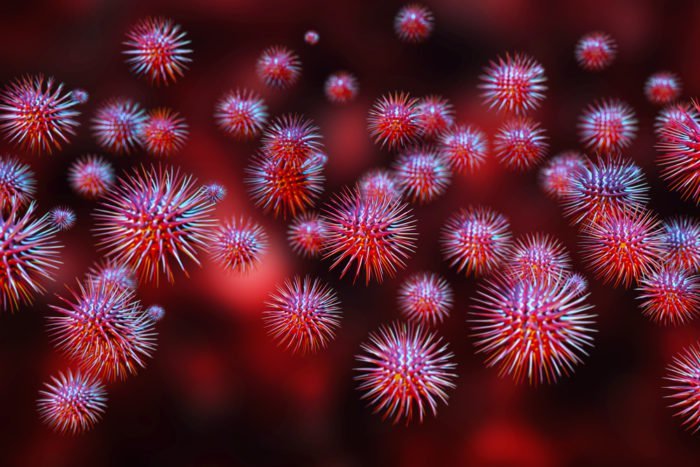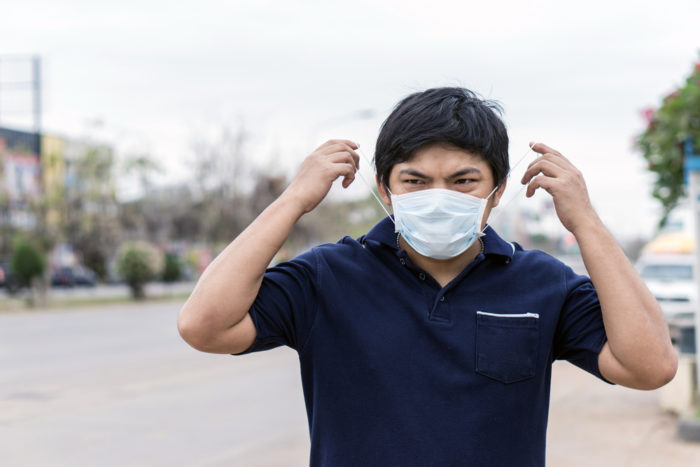Contents:
- Medical Video: Nipah virus explained in detail || Current affairs | जानिए सच
- What is a nipah virus?
- Transmission of the nipah virus
- What are the symptoms of the nipah virus?
- Treatment of nipah infection
- Prevention that can be done
Medical Video: Nipah virus explained in detail || Current affairs | जानिए सच
Lately in Asia, the case of the nipah virus has reappeared. This virus is known to be carried by animals such as bats. In India, there have been many casualties due to this virus outbreak, especially in the Kerala region, South India. Many are victims until some patients have to be quarantined so that the virus does not spread. Actually what is a nipah virus? See the explanation below.
What is a nipah virus?
Reporting from the CDC page, which is the center of disease control in the United States, the nipah virus is one of the viruses that can infect humans and cause quite severe diseases. This virus is also known as a deadly infection that is carried by fruit-eating bats.
This viral infection causes various effects from ordinary symptoms such as fever, respiratory infections, even to brain inflammation. This virus is contagious and deadly. About 80 percent of cases of nipah virus infection end in death.
This virus mostly occurs in the continent of Asia, and is considered a serious public health problem.
Transmission of the nipah virus
The nipah virus is transmitted through many things. First, this virus can be transmitted from bats to pets and then to humans. Animals that are most susceptible to transmitting this virus are fruit-eating bats.
Bats carrying nipah viruses do not look sick, so it is very difficult to distinguish which bats carry the virus with those that do not. Bats then transmit this virus to other animals, such as pigs.
Pigs will get sick after being infected with the virus. In addition to pigs, animals or other livestock can also be transmitted this virus, such as sheep. From these animals, humans who care for them can contract this deadly virus.
Secondly, this virus can also directly transmit from bats to humans directly if there is contact with bats.
Furthermore, viruses that are inside the human body can be transmitted to other people. Spread from person to person will occur through droplets or granules of saliva, granules of water from the nose, urine, or blood. This virus is very easy to spread in one family or with people at home.
Eating fruit contaminated with feces, urine, and saliva infected with nipah bats can also transmit to humans.
Transmission of nipah from the first infection until symptoms occur takes around 4-14 days. In some cases it can also be as much as 45 days of incubation period. In other words, it can be as long as a month you have inserted nipah, only symptoms have not appeared and felt.
What are the symptoms of the nipah virus?
Symptoms that are experienced are actually quite similar to the general infection conditions, such as:
- Fever
- The muscles hurt
- Sore throat
- Throws up
- Dizzy
- Acute respiratory infections occur
This common symptom makes people with nipah infections late to treat. This also makes the diagnosis of the doctor easy to miss, because the symptoms do not indicate a particular characteristic that is easily detected.
In severe cases, inflammation of the brain (encephalitis) can occur. Signs of the onset of inflammation of the brain in infections are persistent drowsiness, headaches, absent-mindedness, decreased consciousness, and seizures that can last for 24-48 hours. This condition can lead to coma until death.
Treatment of nipah infection
Until now there is no cure for this infection. No special antiviral drugs have been found to fight nipah virus infection in humans. There are no special vaccines to prevent infection with this virus.
Now experts say to focus more on prevention, and how to reduce the severity of symptoms that arise. For example, overcome the fever, vomiting, or infection of the respiratory tract, or inflammation of the brain that occurs.
Prevention that can be done
To reduce the risk of getting this virus infection, you should:
- Avoid eating fruit or other foods that have experienced direct contact with animals such as bats or pigs.
- Wash the fruit and peel the skin.
- If since the fruit is harvested it has been found as if there are bite marks, do not consume it.
- Use gloves, masks and protective clothing when caring for sick animals or when cutting animals.
- Reduce direct contact with animals if there is an outbreak in the area around you.
- Keep the animal cage clean.
- Be aware of the presence of fruit-eating bats around you.
- Always wash hands after contact with animals even after wearing gloves, and after visiting someone who has an infection.















